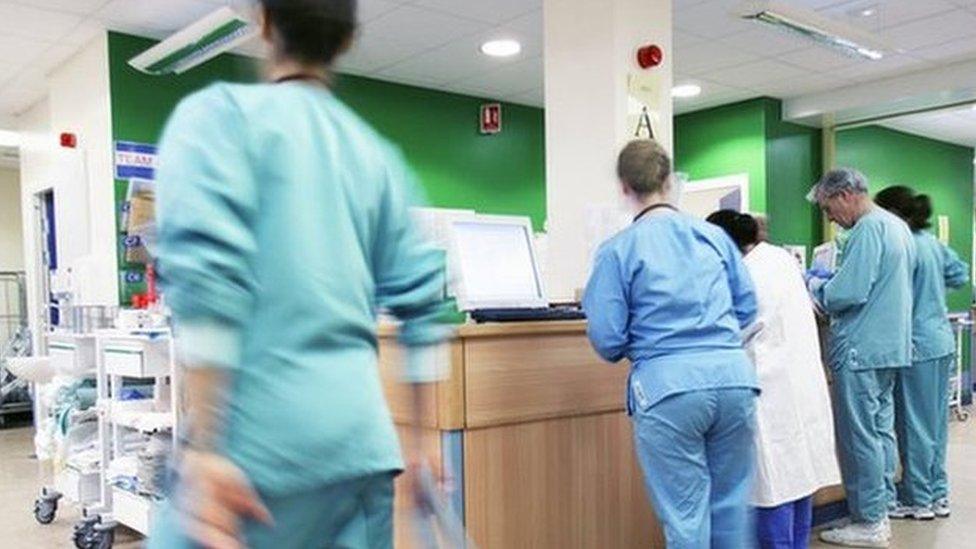Scottish GP recruitment faces 'significant challenges'
- Published
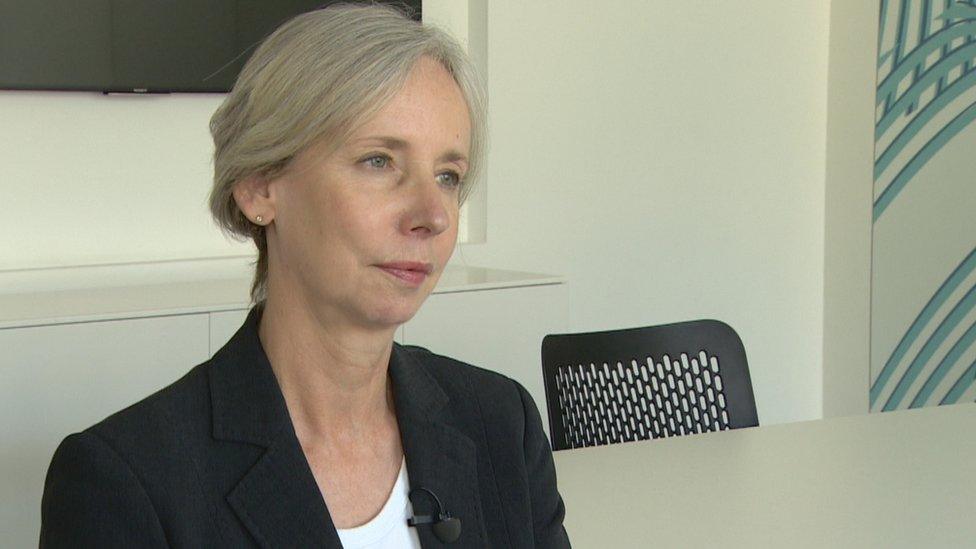
Auditor General Caroline Gardner said GPs were "central" to plans to reshape healthcare
Plans to increase the number of GPs in Scotland face "significant challenges", according to the spending watchdog.
Audit Scotland said the government would struggle to meet its commitment to recruit an extra 800 family doctors over the next decade.
It said there could also be a shortage of primary care workers, such as practice nurses and physiotherapists, who could help fill the gaps.
Doctors welcomed the recognition of the challenges they face.
Health Secretary Jeane Freeman said the new GP contract and investment in multi-disciplinary teams would increase capacity in primary care and help patients to be seen at the right time by the right person.
She said it would also help reduce GP workload, making the career even more attractive to new doctors.
Major policy changes
The latest report from Audit Scotland, which examines how public bodies spend their money, looked at NHS workforce planning in general practice.
It said that expanding the primary care workforce was "central" to the Scottish government's vision of reshaping healthcare to treat more people at home and in the community rather than in hospital.
Auditor General Caroline Gardner told BBC Scotland the government's planning had not been based on good enough information about how many GPs and other staff were needed or what they would be doing.
She said major policy changes had been introduced without a "reliable basis" for its plans.
Her report described workforce planning as "fragmented" and said data on the size and make-up of the primary care workforce was limited.
Ms Gardner said: "They've made a number of commitments to train additional GPs, physios, pharmacists and so on - and those commitments are on track - but it is not clear those commitments will turn into the GPs and other professionals who need to be there in primary care practices as this change is happening."
Complex health conditions
The auditor general said the population in Scotland was growing older and more people were living with complex health conditions, which meant demand for care was increasing.
At the same time, a third of GPs and more than half of practice nurses are over 50 and it is increasingly difficult to recruit and keep people in primary care practices, she said.
"Because the government's planning for increasing the number of GPs doesn't take account of things like changing working practices, with more GPs working part-time, and the rate of retirement that were are seeing among the GP workforce, we think it will be difficult to for the government to meet its targets of having 800 additional GPs working in Scotland in 10 years' time," Ms Gardner said.
"That's compounded by the difficulties there are in recruiting pharmacists, physiotherapists and practice nurses who work in the multi-disciplinary teams with GPs.
"The two together are really critical to making sure primary care can meet the needs of Scotland's people in future."

Analysis by Lisa Summers, BBC Scotland Health Correspondent
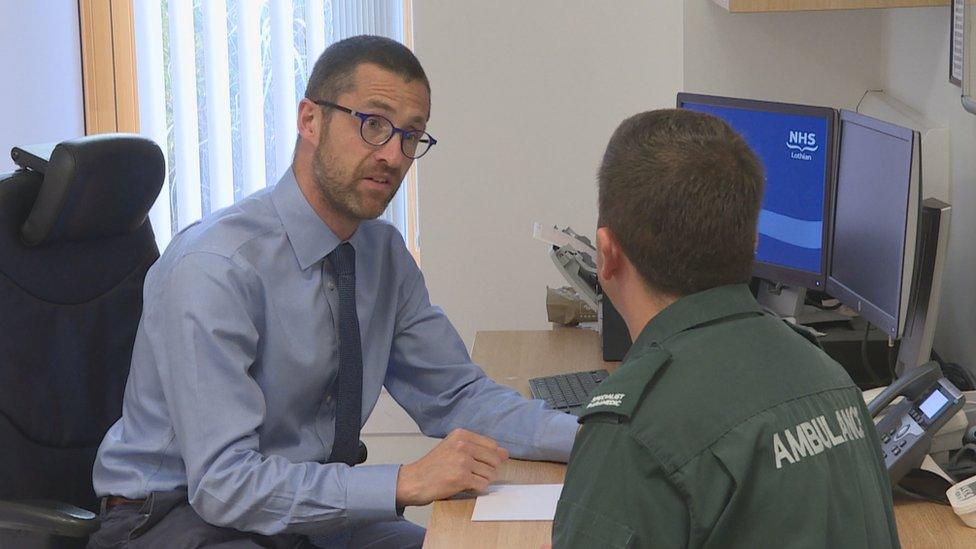
The plan is to have an additional 800 GPs over a 10-year period
Many of us are going to have to get used to the fact that we can't phone up the doctor's surgery and automatically expect to get an appointment with a GP.
Numbers of family doctors have remained relatively stable over the past decade but the number of patients they see is going up.
That's why GPs are increasingly relying on additional staff like nurses, paramedics or physiotherapists with advanced training.
Doctors argue more GPs are still needed to manage these multi-disciplinary teams and deal with the most complex cases.
However, despite multi-million pound recruitment campaigns and more money for training, the auditor general is not convinced the policies will translate into enough staff to cope with the rise in demand.
This report will act as a warning to government that their ambition to keep people out of hospital for longer and care for them in the community is in jeopardy.

Workforce commitments
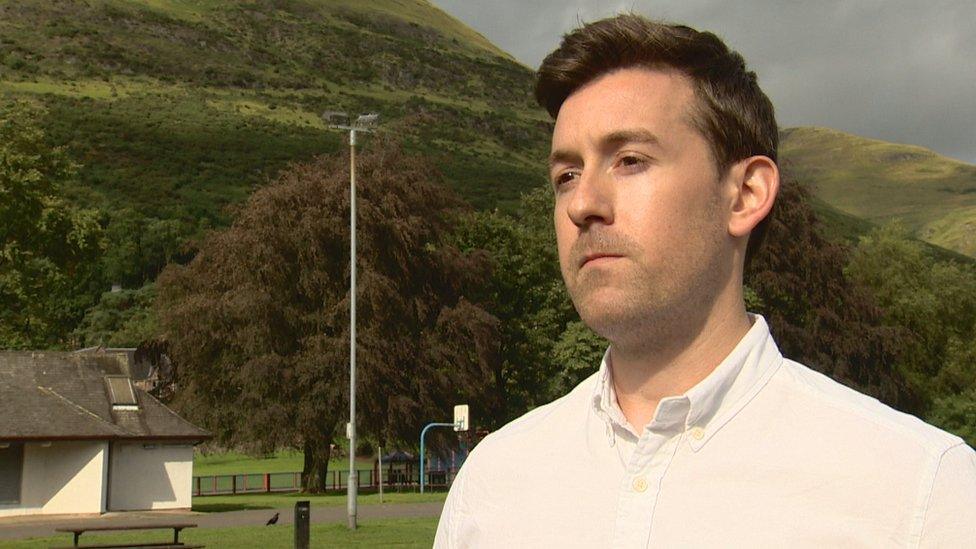
GPs can identify issues early and support people to manage their own health
In April last year, the Scottish government published its National health and social care workforce plan focusing on primary care., external
The Audit Scotland report said one of the "most ambitious workforce commitments" in the plan was to have an additional 800 GPs over a 10-year period.
Using 2017 as the baseline, this would represent an 18% rise in the number of GPs from 4,398 to 5,198.
The spending watchdog said its analysis, taking account of past trends and future pressures, showed a "potential shortfall" between the Scottish government's commitment and the likely number of GPs.
It also pointed out that the target was based on a headcount of GPs rather than whole-time equivalent.
With more GPs working part-time, this is likely to translate into considerably less than 800 additional full-time GPs, it said.
It also said changing work patterns meant that for every GP that retired, more than one would need to be trained and recruited to replace them.
Manage their own health
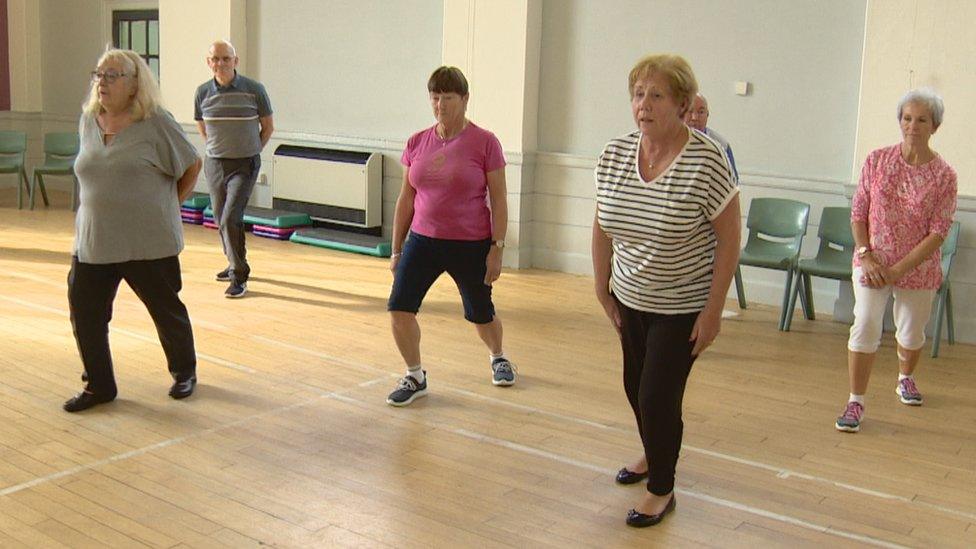
Primary care plays a major role in shifting health care so that there is a greater focus on keeping people well in the community
Dr Alasdair Forbes, from the Royal College of General Practitioners Scotland, said existing GPs were struggling.
He said a recent report showed GPs often felt overwhelmed by their daily tasks and 26% said they were unlikely to be working in general practice in five years' time.
Dr Forbes said policymakers needed to plan the workforce based on whole-time equivalent figures and not headcount to ensure accuracy.
He said: "The Scottish government needs to urgently improve its understanding of future demand for services, and how efforts to improve training, recruitment and retention of GPs will meet estimated demand."
Andrew Cowie, from the BMA in Scotland, said it was no secret that Scotland desperately needed more doctors in general practice.
Scottish Conservative health spokesman Miles Briggs said: "Doctors have been very clear that more than 800 new GPs will need to be recruited over the next decade just to stand still.
"But because of the SNP's shambolic workforce planning, even that might now not be enough."
'Shifting the balance'
Scottish Labour health spokeswoman Monica Lennon said the report was a "damning indictment" of the Scottish government's failure to plan for the workforce needs of the NHS.
Health Secretary Jeane Freeman said: "Today's report from Audit Scotland highlights the vital role primary care plays in delivering our long-term vision of shifting the balance of care towards community and preventative care.
"As we work to address the challenges in this area we are seeking to build on our record number of GPs by at least 800 in the next 10 years. This is backed by our substantial annual increases in primary care and general practice funding.
"The new GP contract and investment in multi-disciplinary teams is increasing capacity in primary care and helping patients to be seen at the right time by the right person. It will also help reduce GP workload, making the career even more attractive to new doctors."
She said the Scottish government was increasing nursing and midwifery student intakes, increasing medical school places, protecting free tuition for nursing and midwifery students and increasing their bursaries.
- Published17 June 2018
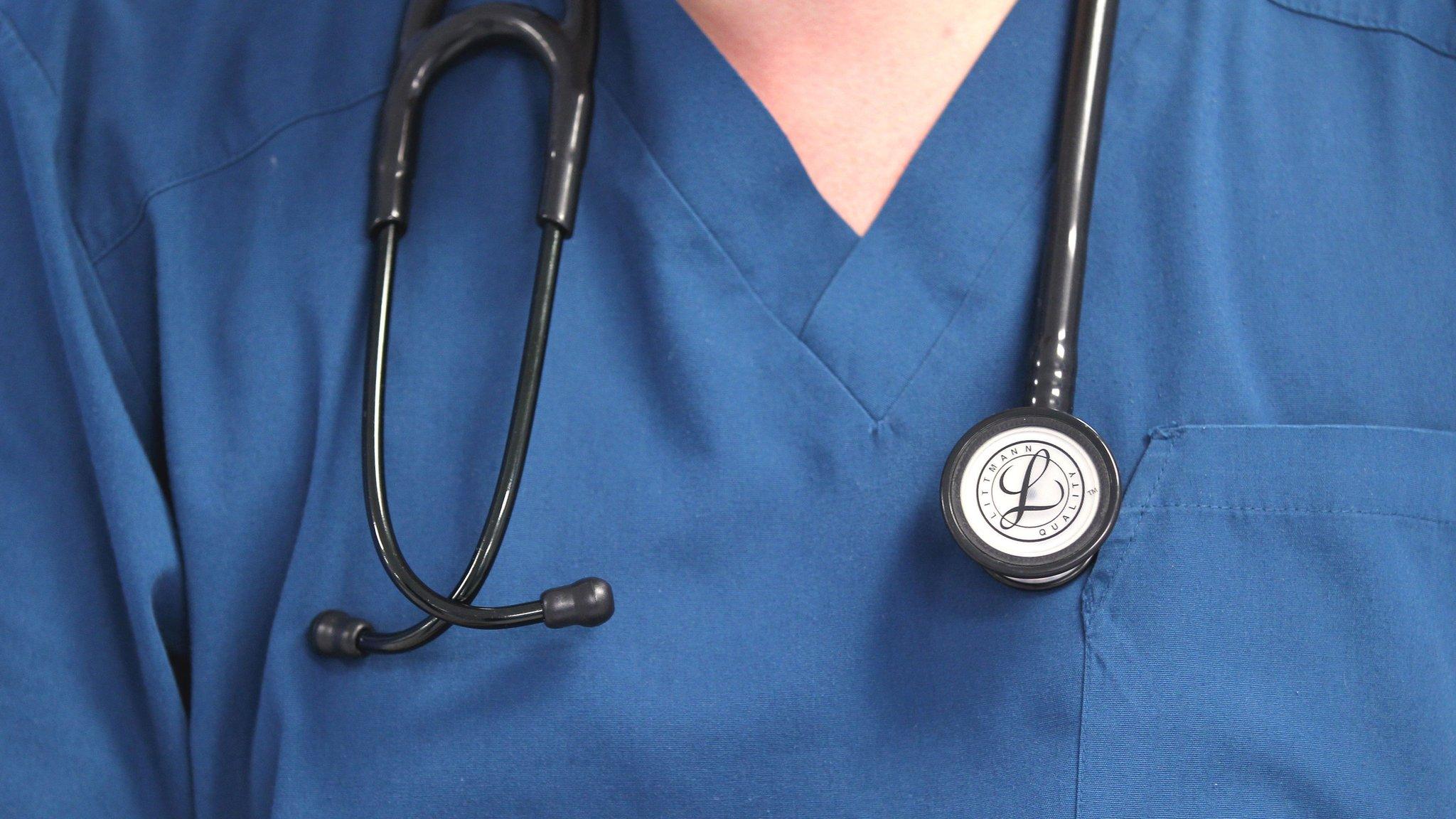
- Published1 December 2017

- Published27 July 2017
